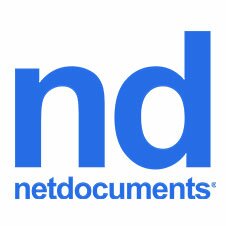People, processes, technology and the workplace: What’s to come in 2021?
The landscape of legal work has changed significantly over the past year, but what you may be wondering is whether or not these changes will actually stick and, if they do, what effect they’ll have on your day-to-day work as a lawyer, legal operations professional, or IT support.
To answer these important questions we asked our customers, partners, and internal experts to provide their perspectives on what the future holds for legal professionals, and those who support them, in 2021. Their predictions spanned the breadth of how firms will support their people to developments in legal tech to the post-2020 workplace.
People
Legal work has historically been a relationship driven business, with lawyers often spending significant amounts of time courting new business for the firm. But what clients have required from lawyers—and indeed, what lawyers and supporting staff have required from their organizations—has evolved significantly in the past year.
“In 2021 lawyers will need to show real differentiation and transform how they build relationships. Traditionally, law firms have relied on face-to-face meetings and luxury office spaces to show value and influence clients. With offices shutting their doors due to restrictions and hybrid working now becoming the ‘norm’, relationship management will be transformed as there will be pressure on law firms to find new ways to show value and to truly distinguish from competitors. Technology will play a huge role in helping to mirror the ‘office experience’, not only enabling lawyers to differentiate themselves and improve collaboration, but also by being able to deliver the slick and secure experience the client expects. This will be key in effectively building good relationships.”
– Guy Philips, VP of EMEA Sales, NetDocuments
“The past year more than any other, technology leaders and teams have shown their value. There is an opportunity for IT leaders to change the conversation around performance measurement (which is often the IT spend as a percentage of revenue) to include measures such as:
Digital Plan – how effectively it is being executed and how well adopted.
IT team productivity reports – to demonstrate how productive the teams are, what they are spending their time on and how that adds value to the business. The reports can also be insightful for the team leaders and managers. Also helps to support continued flexible working.
Productivity and efficiency improvement to the practice of law – use of tech such as robotic process automation or AI
Revenue generated from client tech solutions
How technology is helping to win tenders”
– Berys Amor, Director of Technology, Corrs Chambers Westgarth
“The industry’s focus on lawyer’s/legal professional’s mental health and work/life balance has been long overdue. I think we will start to see this become more of a priority and 2021 being the year a noticeable shift takes place. This focus will be bolstered as businesses and firms adopt technology to ease the burden on legal professionals.”
– Michelle Lundberg, Director of Product Marketing, NetDocuments
“With work from home becoming the main way many organizations work, the network perimeter has greatly expanded and securing it can be more difficult. Cyber criminals will increase the Phishing and Spear Phishing attacks as an effective way of introducing ransomware and other malware throughout organizations. An organization is only as strong as its least educated employee. Keep up the security awareness trainings in 2021.”
– Collin Ferre, Manager of Internal Audits and Compliance, NetDocuments
Processes
As new technologies were adopted, so to were new processes. Looking ahead, legal professionals and those who support them must take great care to look for ways to improve these new processes that are more than likely here to stay.
“We are proactively working with our clients. Encouraging them to continue to think differently about how they get their work done. 2020 was the year of change, and there is an amazing opportunity to embrace change (maybe at a lesser pace in 2021 than 2020) and to find ways to improve in all areas of the firm – people, process, technology, security, and culture.”
– Debbie Foster, Managing Partner, Affinity Consulting Group
“Legal departments and law firms, especially after all that COVID-19 brought, will see intensified requests to do more with less in 2021. Heavier scrutiny around transactional work may expand the use of AI and automation for tasks like contract management. In 2021, we’ll see an uptick in CLM technology fueling routine NDAs, leases and other non-complex agreements. The shift toward automation, coupled with the remote working environment firms have learned to embrace, will force legal teams to pay closer attention to information security, data privacy and IP protection—realizing the need for a more efficient information governance framework.”
[Note: Prediction originally appeared in Legal Tech’s
Predictions for Legal Technology Innovation in 2021]
– Rich Vestuto, Managing Director, Duff & Phelps
“The need for collaboration both internally and externally really hit a high note last year. With more organizations adopting a work from home and hybrid model, the need to chat and connect virtually was more significant than ever! With the adoption of Slack and Microsoft Teams, the advanced ability to search and cull through data will be more urgent for eDiscovery, compliance and surveillance teams for legal matters. Data will continue to increase from terabyte to petabyte, and petabyte to exabyte! Those organizations who have the appropriate solutions in place for search, capture, and monitoring will be better positioned to make decisions on data down the road.”
– Ian Tighe, Vice President of Sales, VerQu
“In 2021 we will continue to see an increase of legal practices with remote workers. As such, decentralized inexpensive scanning combined with a document management solution will be paramount for collaboration.”
– Carlos Jackson, Product Specialist for ScanSnap, Fujitsu
”Embracing cloud technologies more fully will democratize legal for all. In a world where more people need access to legal services, but fewer people can afford them, it’s essential that lawyers are able to adapt. 78% of lawyers want to see payment options that make legal services more affordable, according to the 2020 Legal Trends Report, for example. Lawyers who leverage the efficiency and flexibility of cloud-based services will be better positioned to offer legal services at rates that better serve clients. These law firms will also be able to access a greater market demanding legal services than they have ever encountered in the past.”
– Joshua Lenon, Lawyer in Residence, Clio
Technology
Solutions are continuing to evolve, but so are the expectations of industry leaders. These expectations are certainly shaping feature developments, technology partnerships and mergers, and how organizations are making their next technology selections.
“The impact of 2020’s COVID-19 crisis brought on the abrupt and rapid adoption of remote-working situations. This, along with quickly evolving global privacy laws and content compliance requirements will significantly shape 2021 strategies. Firms and organizations are rethinking the way they work, driving the need for continued technology innovations centered around cloud-based collaborative solutions and a solid data governance strategy.”
– Dan Anderson, CEO, SeeUnity
“We are at an inflection point where the innovation and acceleration in cloud-based legal technology is so strong, that law firms are migrating off of legacy on-prem solutions at a rapid pace. What used to be cutting edge 5 years ago is now mainstream. During the course of this pandemic, many law firms and corporate legal departments quickly realized existing remote access solutions did not keep up. Over the next few years we will continue to see this digital transformation resulting in enhanced firm document management, practice management, time and billing, litigation tools and more.”
– Jeff Alluri, VP Consulting, Element Technologies
“Small legal tech vendors will continue to be picked up by the platform players enabling great technology and ideas to come to market faster from the most trusted and proven vendors.”
– Josh Baxter, CEO, NetDocuments
“The Cloud has become less mysterious for the legal community. Aging infrastructure, speed and capacity for more information are major drivers of law firms willingness to move to “the cloud.” Acceptance has been very slow in law, but we are now beginning to see more and more reliance on new technology. Fortunately, NetDocuments had seen this eventuality twenty-five years ago and created a secure solution built solely on the idea of availability from everywhere for everybody.”
– Michael Kraft , Founder, Kraft Kennedy
“Technology consolidation will start to dominate legal requirements in 2021. Instead of settling for separate technologies forPMS, DMS, collaboration & secured delivery, annotation & discussions, tasks & signatures, enterprise search & AI, sets & closing binders, document comparisons & PDF creation, firms will want a single cloud service which offers common UX and infrastructure, because of simplicity, reduction in cost, and ease of deployment in a work-from-home reality.”
– Alvin Tedjamulia, Co-founder and CTO, NetDocuments
“AI as the ‘lead word’ in pitches will fade into technical specs on the last page of the glossy. Technology providers will return to focusing on ‘how’ problems are solved and deliver on that promise. AI will become just as expected as spell check is in a software solution.”
– Andy Morris, CIO, Thompson Hine LLP
Workplace
There’s little question that where we work was completely redefined in the last year. There’s been no shortage of ‘how to set up a home office’ or ‘how to keep kids busy while you work’ tutorials, but with the challenges of remote work there are few who expect it to simply go-away at the end of the pandemic.
“Hybrid meetings will be the new norm in 2021. I expect to see creative new hardware and software options that ensure everyone is engaged and included as some colleagues return to the office and others work from home indefinitely.”
– Dan Hauck, Chief Product Officer, NetDocuments
“2020 saw how law firms responded to the pandemic by implementing remote working; 2021 will see how law firms will redefine the‘’workplace’’ for the future. Technology and specifically NetDocuments, will be strategic enablers in this redefinition.”
– Doug Hargrove, Managing Director Education and Legal Tikit, a One Advanced Company
“Remote work and/or flexible work will become commonplace. According to Altman Weil, this will not only be office attendance, but also court appearances, depositions, mediations, and interactions with clients, law firms, vendors, and key stakeholders.”
– Brooke Kammeyer, Product Marketing Manager, NetDocuments
The Future for Legal Begins in 2021
The legal industry has historically been slow to change—and for good reason!—but COVID-19 has forced significant changes that now present a choice for industry leaders: stick with them and improve upon our new realities, or retreat into the comfort of near-forgotten norms.
If there’s anything we’ve learned after more than 21 years in the industry, it’s that the organizations who choose to innovate are the ones that stand the test of time and disaster. We invite leaders from every corner to stop looking in the rear-view mirror and join us as we continue to create for the future of legal work.



